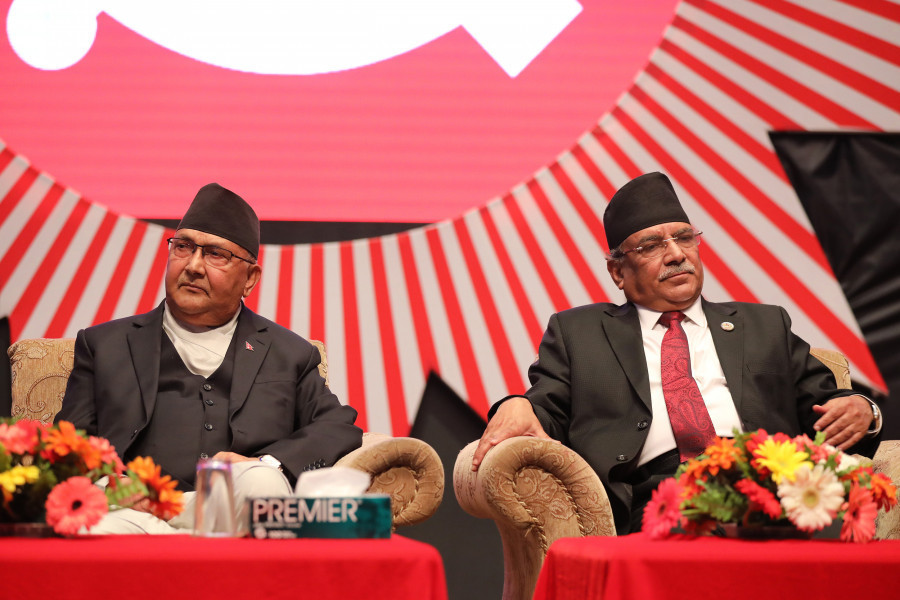Editorial
People are fed up
Undemocratic practices have been the hallmark of politicians across parties.
As the court verdict on the House dissolution nears, the Pushpa Kamal Dahal-Madhav Kumar Nepal faction of the Nepal Communist Party appears more desperate than ever. The Election Commission remains undecided regarding the split of the ruling party. Their series of ‘show of strength’ demonstrations in the capital have failed to garner much public support, and instead provoked ire for disrupting daily life. Proposals sent to the Nepali Congress and Janata Samajbadi Party for a joint movement have been snubbed. Civil society, which has been holding parallel demonstrations against the House dissolution, has questioned the intentions of the political parties and opted out.
In a bid to garner broader support, the desperate Dahal-Nepal faction has now announced that the party is drafting a white paper detailing its commitments to resolve the political stalemate. Leaders from the Dahal-Nepal faction say the white paper would explain the party’s plans for the near future and help convince opposition parties and civil society to come together for a joint movement. Whether the ‘commitment paper’ will be able to do so is for time to unfold, but what has been vividly clear from the start is that both factions of the ruling party, as well as other parties, are equally to blame for their lack of commitment to democracy, the rule of law and social justice.
For decades now, the public has been at the receiving end of political greed and corruption, no matter who is in power. Undemocratic and unconstitutional practices have been the hallmark of politicians, who do nothing but consolidate power and blame each other for the systematic anomalies. The country, therefore, continues to be trapped in a vicious cycle of instability which has weakened democratic institutions and the rule of law while systematically stifling all hard-won rights of the citizens.
If we need any evidence of recurring foul play, several weeks since Prime Minister KP Sharma Oli dissolved the House, the failure of the political parties to find common ground reeks of opportunism and a complete lack of democratic norms within the parties. This is a time when the political parties should have converged to manage their conflicts and strengthen democracy to align the country's interest amid a public health emergency. Instead, they have engaged in eroding political culture and have opened gaps for confrontation and further polarisation.
Shocking as it was, what has led to the current crumbling of the ruling party was only a matter of when the intra-party feud would reach its climax. Now that it has taken the entire country hostage, shocking yet is there have been no efforts to reach a negotiation. Both factions of the Nepal Communist Party are inclined to bulldoze their might through, the traits of which can be found across opposition parties. In its reservations about joining the protests, civil society is correct in urging the political parties to come up with common commitments and plans to end the existing anomalies in society.
Just changing who resides at Baluwatar next will never institutionalise democracy. We need to breed and foster intentions that will abide by democratic principles and the law of the land before progress is possible. Besides, we also need sweeping reforms in the way political parties operate so that they are relevant and at par with public expectations of good governance and progressive society. Lest we forget, when in power, the same set of politicians who pitch ideas of socio-economic progress are the first ones to suppress fundamental rights of the citizens. The silent majority is keeping a tab on this. It is payday.




 9.89°C Kathmandu
9.89°C Kathmandu














